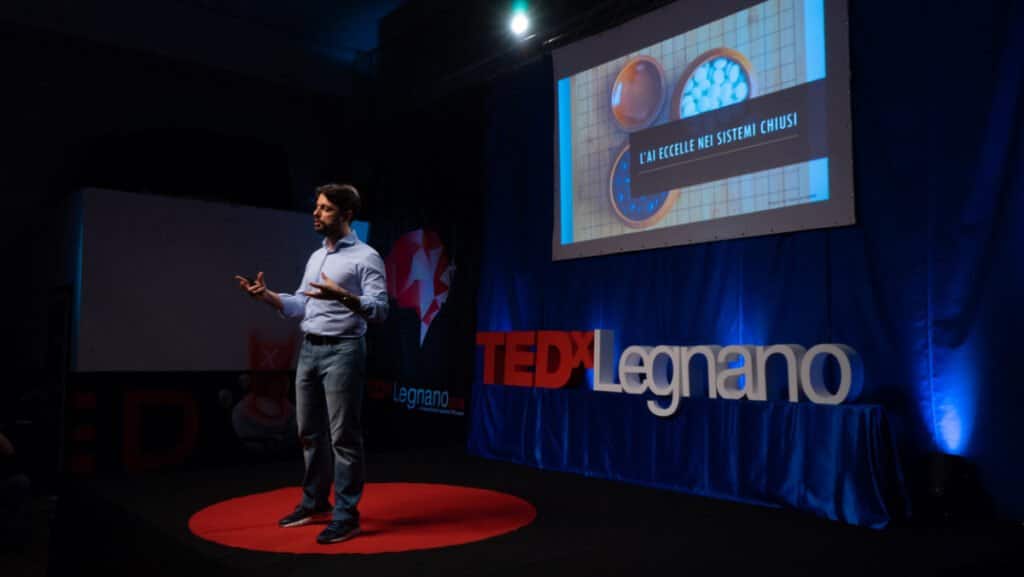The effects of the pandemic are not temporary. This is an event which, like every "black swan", is destined to change the course of history forever. Each social aspect will take different turns, or accentuate already present trends. Environment, sustainability, health and digital will change everything.
This last sector, digital, is perhaps the one that has shown the greatest acceleration after the healthcare sector. Long distance relationships, even professional ones, have brought an increase in "agile" culture. Among the new trends, Smart Selling appears to be the most disruptive.
A step back, before circumscribing the phenomenon of Smart Selling and its formation (in the sense of origin, and in the sense of the teaching associated with it). The closures caused by the pandemic have profoundly transformed the fabric of sales and consulting. Those who had not yet decided to switch to digital systems have experienced all the bewilderment of having to provide online services perceived up to that moment as the exclusive prerogative of the physical world. How will it be possible to manage this moment of transition?
I talk about it with Claudius Zamagni, Federico Vigorelli Leek e Lorenzo DeGrandi di Choralia. Choralia is a company that can have its say in this regard: with innovative methods based on gamification and digital technologies, it has rethought training and pioneered the next era of Smart Selling (with a book-manifesto which is already a point of reference on the subject). It has 50 of Fortune's Top 500 companies among its clients.
What is Smart Selling?

“Agile culture”, I said. With large companies also becoming aware of smartworking, the job market is about to become extremely dynamic. A dynamism that will also shift the focus to people's skills: more creativity and soft skills will be needed. It's not a small or painless transition: probably 50% of people will have to change jobs, and social support tools such as the European universal income they will become a necessity. In this framework of necessity in reinventing oneself (outplacement will be another fundamental theme) you need to learn well and quickly.
Smart Selling is the complex of all the technologies and techniques that allow consultancy and sales to be brought to levels of excellence through digital. In just one verb: LEARN. Learning the use of video conferencing platforms, for example. And not just to talk: to effectively present offers, involve customers and investors. Again: learn to structure webinars and digital demos, which have proven to have much more response than a social media campaign. Those who learn will travel faster than before Covid. Whoever does not, will sink. Dura lex, sed lex.
And with us? How will the situation change in Italy?
“For Italian companies,” he says Claudius Zamagni, CEO of Choralia, “the problem/opportunity of exports will be increasingly important, not only due to the lower internal demand capacity due to the crisis, but also due to a healthy diversification of commercial risk. Likewise, the risk of supplies (particularly serious during the early stages of the pandemic) will mean that companies will prefer producers closer to the Far East and less risky. A phenomenon, in fact, contrary to globalization, which could also have beneficial effects on local economies, despite higher costs."
In terms of development opportunities, it is very likely that some sectors will have a development well above average: alternative energies, the health sector, robotics and the ubiquitous digitalization that will be compelling compared to many others. Also for this reason acquiring the skills necessary for Smart Selling will prove to be fundamental.

We'll make it? Zamagni is optimistic. “Our culture is always inclined to grasp the good side of life, both in society and at work, and the desire to return to see each other and to travel, attracted by the beauty of the territory and the pleasures of the table, will give a strong boost to consumption . It is no coincidence that a master of thought in the interpretation of society and consumption like Massimo Costa claims that (as after the Second World War and the Years of Lead) we will raise our heads with a smile full of relief and a great desire to start again."
Learning, it was said. And even in education we have witnessed a revolutionary transition: from universities to nursery schools, digital tools have constituted a lifeline in the pandemic. Now how will the sector change? Can digital training surpass in-person training?
“The training model that will probably catch on the most will be “blended”. A model capable of mixing different training methods, exploiting them to their full potential,” he says Federico Vigorelli Leek.
Thinking that digital training can overcome face-to-face training is like wondering if the use of the screwdriver will surpass that of the hammer. The most correct question leads us to think about what are the situations in which the use of a screwdriver is preferable to that of a hammer.
Federico Vigorelli Leek, psychologist, professor of HR Digital Innovation at the 24Ore Business School and partner of Choralia

When do you need a screwdriver and when do you need a hammer?
The pandemic has shown us that it is possible to provide quality training also via Virtual Classroom, with net cost savings, but face-to-face training remains preferable in all situations where it is necessary to intervene strongly on people's motivation. The physical presence of the teacher and colleagues helps to catalyze attention in a way that a screen cannot. Conversely, to transfer "basic" notions with respect to a skill, asynchronous digital, especially in the form of micro-learning (short contents such as information videos of 5 minutes or less) is able to guarantee a good level of quality at cost reasonable.
We are facing a moment of great experimentation that is putting us in a position to completely rethink a process that has remained largely unchanged for decades. On the one hand, we need to work on “new” technologies with costs that are gradually reducing, such as Virtual Reality or Learning Games. On the other hand, it is necessary to maintain a “secular” approach with respect to the form, more oriented towards didactic effectiveness than just economic efficiency. Especially when it comes to providing important operational capabilities in the future such as those related to Smart Selling.
In such a framework, Choralia finds itself acting as a pivot, as an innovative company in the training of human resources.
The Milanese society has embraced (and in many ways also anticipated) this change, focusing on the transformation of the teaching and training model with new engineering-teaching methods. For example i People Analytics, the last frontier in the field of Human Resources to analyze their performance and identify advantages and criticalities in a digital-oriented approach. Or the Gamification in learning paths, a technique that aims to strengthen human behavior in an engaging way.
Being already "on the curve" at a time like this has led Choralia to a + 50% increase in turnover in the first two months of 2021 compared to 2019 (+110% compared to the same period in 2020). When they say "intercept the future in advance".
How could Choralia's strategy evolve in the coming years?
“From a strategic positioning point of view, we will not change our promise to the market, which we believe is even more current now, on the contrary we will strengthen it,” he says Lorenzo DeGrandi, President of Choralia. “Many companies will have to invest in the coming months to restart after the difficult period just passed and they will need to do so where needed and how needed. Training aimed at improving performance indicators will be needed. This is why in the field of Smart Selling we are refining and engineering People Analytics tools that allow you to choose, first where to maximize the return on investments in training and then to measure their impacts."
The learning of the future: not only "where it is needed", but "how it is needed"
Training and learning aim to become as usable as possible, also through functional and innovative teaching methods. In addition to the aforementioned blended courses, it will be important to ensure maximum interactivity and the incentive to participate even remotely. People will need to feel involved as individuals as well. For this reason, surveys, stimuli and apps that give feedback on skills will grow a lot.


